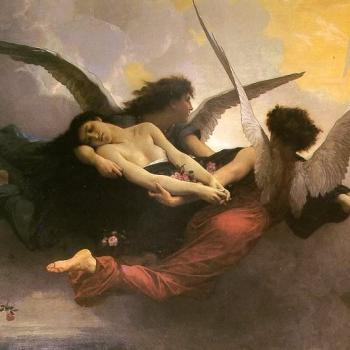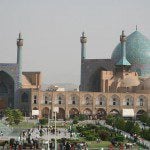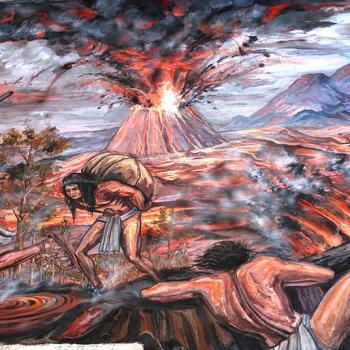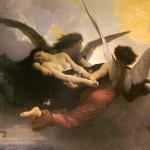
(Click to enlarge.)
Matthew 7:13-14
“Enter by the narrow gate; for the gate is wide and the way is easy, that leads to destruction, and those who enter by it are many. For the gate is narrow and the way is hard, that leads to life, and those who find it are few.”
Luke 13:23-24
“And some one said to him, ‘Lord, will those who are saved be few?’ And he said to them, ‘Strive to enter by the narrow door; for many, i tell you, will seek to enter and will not be able.”
The doctrine of “the two ways” (which was a favorite topic of the late, great Hugh Nibley) is omnipresent in the ancient and biblical worlds — light and darkness, good and evil, etc.
Just yesterday, in my class on the Arabic Qur’an, we read Qur’an 90:7-16, which briefly mentions the two ways and then, for a few short verses, discusses one of them in terms reminiscent of the definition of true religion given in the New Testament epistle of James. (See the Arabic text, and a passably okay half-way decent minimally acceptable English translation, here.)
I hope that familiarity hasn’t completely dulled the impact of Robert Frost’s famous poem “The Road Not Taken”:
“The Road Not Taken”
Two roads diverged in a yellow wood,
And sorry I could not travel both
And be one traveler, long I stood
And looked down one as far as I could
To where it bent in the undergrowth;
Then took the other, as just as fair,
And having perhaps the better claim,
Because it was grassy and wanted wear;
Though as for that the passing there
Had worn them really about the same,
And both that morning equally lay
In leaves no step had trodden black.
Oh, I kept the first for another day!
Yet knowing how way leads on to way,
I doubted if I should ever come back.
I shall be telling this with a sigh
Somewhere ages and ages hence:
Two roads diverged in a wood, and I?
I took the one less traveled by,
And that has made all the difference.











